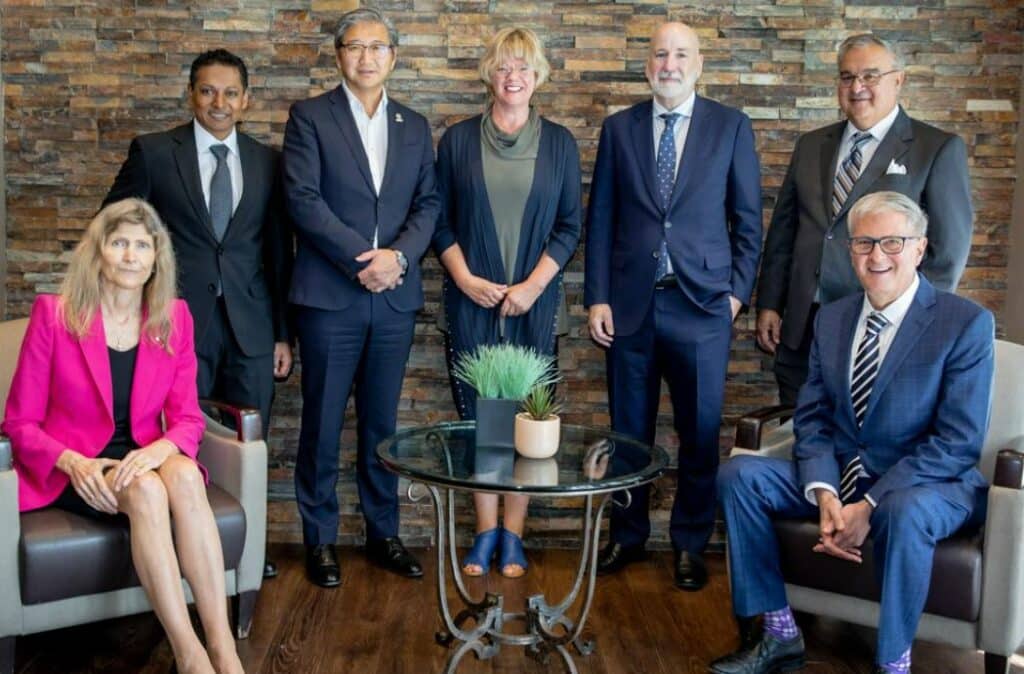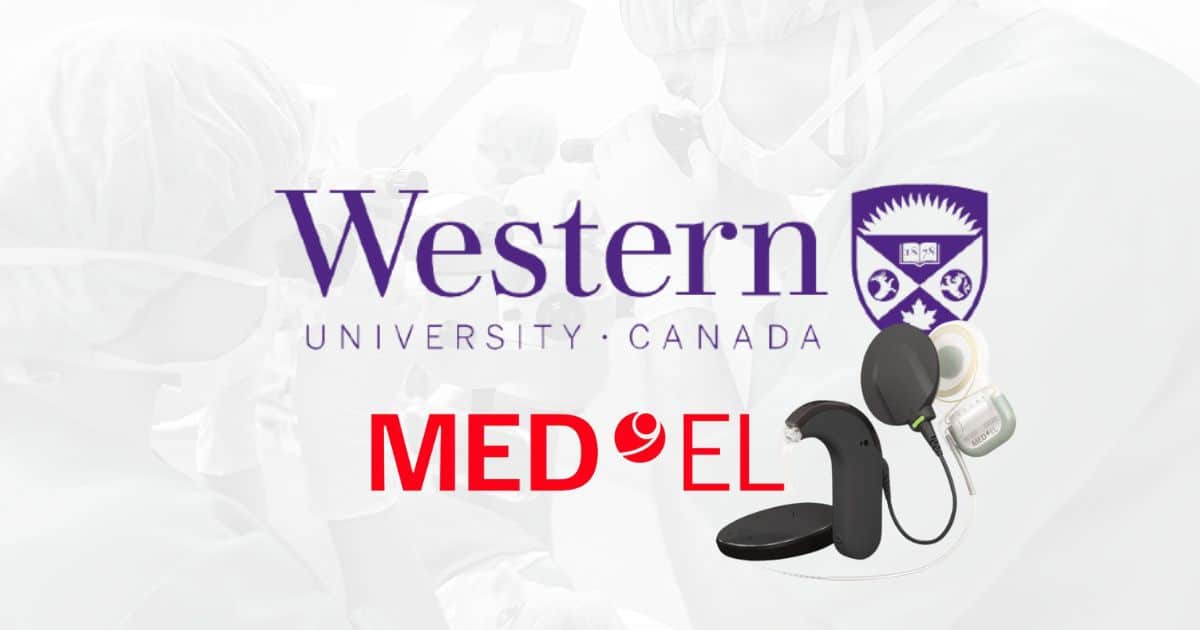LONDON, ONTARIO – A substantial $8.5 million donation from global hearing implant developer MED-EL is powering trailblazing research at Western University to precisely tune cochlear implants for individual patients. By accounting for each person’s unique inner ear anatomy, researchers aim to dramatically improve hearing outcomes following implantation.
Western matched MED-EL’s gift to establish two new research chairs focused on translating innovations in auditory science and engineering into improved clinical care. The donation cements an already strong partnership between MED-EL and Western, where Drs. Sumit Agrawal and Hanif Ladak are pioneering approaches to customize cochlear implant programming.
“We want to learn more about the ear and to come up with better solutions to deal with hearing loss of all kinds. With these chairs, we hope to facilitate cooperation between implant developers, researchers, surgeons and patients to make that happen.”
–MED-EL co-founder and CEO, Dr. Ingeborg Hochmair
Agrawal, a surgeon-scientist, and Ladak, a biomedical engineer, are leveraging imaging data and artificial intelligence to create mapping tools that identify how electrodes on a cochlear implant should be programmed to match each patient’s unique inner ear anatomy.

(From left) Ingeborg Hochmair, CEO & CTO, MED-EL Worldwide; Dr. Sumit Agrawal, otologist-neurotologist and professor, Schulich School of Medicine & Dentistry; Dr. John Yoo, dean, Schulich Medicine & Dentistry; Florentine Strzelczyk, provost & vice-president (academic), Western University; Ray Gamble, president, MED-EL Canada Corporation; Hanif Ladak, professor at Schulich Medicine & Dentistry and Faculty of Engineering, and Alan Shepard, President, Western University, at the announcement of the chairs. Image credit: Steve Anderson/Western Communications
“It’s like tuning a piano,” explained Agrawal. “Patients get an implant and it can be massively out of tune – they can understand speech, but music or tonal languages are difficult. By precisely tuning the implants, we’re hoping to greatly improve sound quality and the listening experience.”
The customized mapping approach accounts for natural variation in cochlear shape and electrode positioning, moving beyond the standard one-size-fits-all programing traditionally used. The researchers believe precision tuning will allow patients to better perceive tone, texture and timbers – vastly expanding their hearing capabilities.
A randomized clinical trial underway in partnership with the University of North Carolina aims to demonstrate patient benefits. One trial participant, Taryn Armstrong, said the customized mapping has been life changing after struggling with severe hearing loss for years. “It’s given me a lot of my confidence back,” she shared.
With hearing loss impacting over 700 million people globally, innovative solutions are sorely needed. “MED-EL will change lives through this investment in interdisciplinary research, and we are thrilled they’ve chosen to partner with Western,” said University President Alan Shepard. The donation and research partnership sets the stage for the university to solidify its reputation as an international leader in hearing health innovation.
Source: Western University







